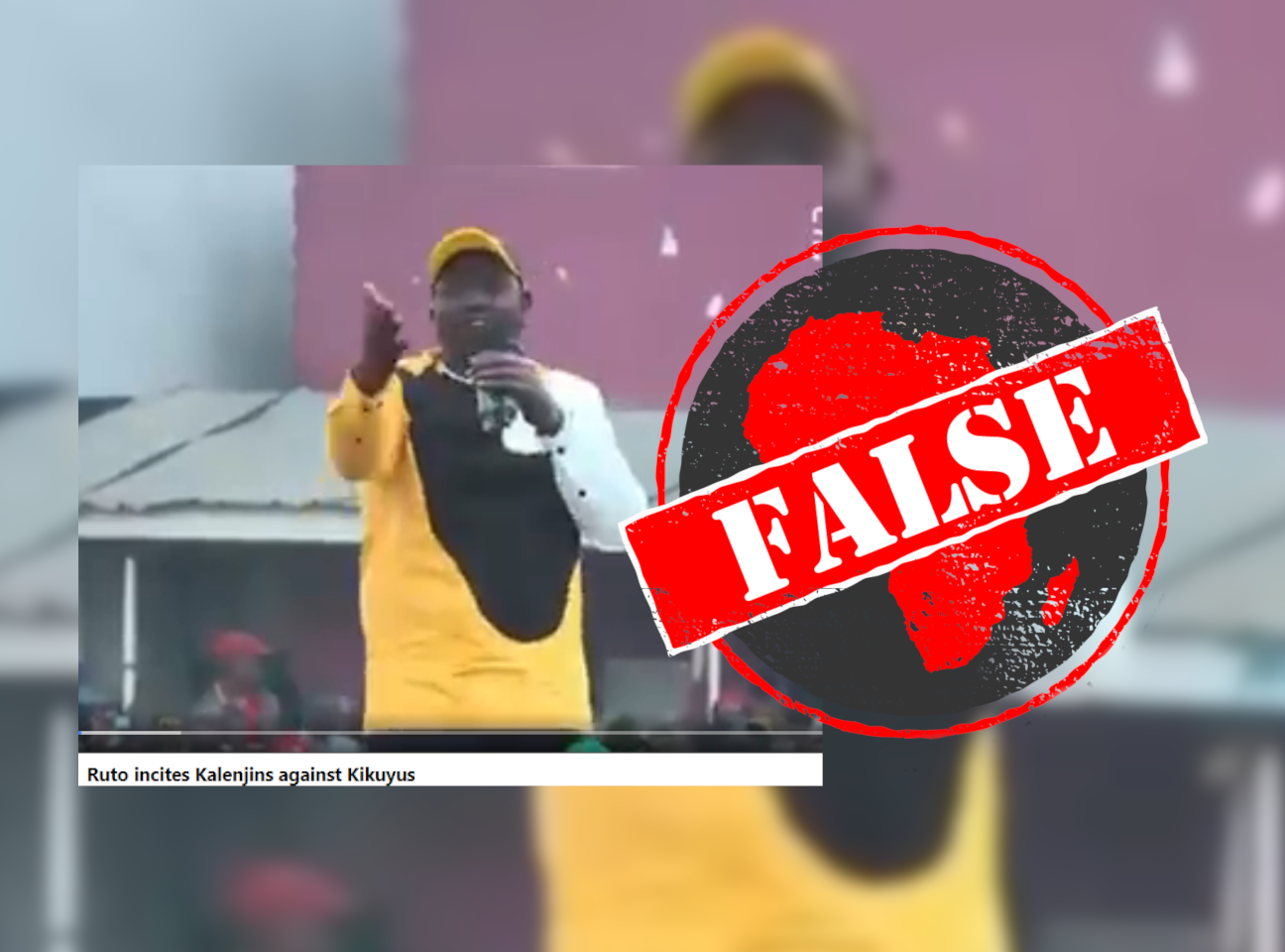A video posted on Facebook claims Kenyan deputy president William Ruto “incited” his Kalenjin community against the Kikuyu during a campaign rally ahead of the 9 August 2022 elections.
In the video clip, posted on 29 July, Ruto speaks in Kiswahili and English, telling the president to stop mentioning his name.
“Talk about your candidate,” Ruto says. “I supported you when you needed a man to support you. If you do not want to support me, leave me alone.”
Ruto fell out with Kenyan president Uhuru Kenyatta and he in turn backed opposition leader Raila Odinga for the presidency.
Ruto was declared president-elect on 15 August, but the opposition moved to court to challenge the win.
In the clip, Ruto continues to address the president: “Sasa eti wewe unaanza kuni-threaten mimi. Ati utanifanya nini? Bora usiuwe watoto wangu, lakini mimi na wewe tafadhali tuheshimiane.”
Roughly translated from Kiswahili, this means: “Now you want to threaten me? What will you do to me? As long as you do not kill my children, but please, let us respect each other.”
As Ruto speaks, the crowd chants “Yote yawezekana bila Uhuru”, Kiswahili for “Everything is possible without Uhuru”.
But did Ruto really incite the Kalenjin community, as claimed in the caption to the video? We checked.

Caption gives false context
We watched the whole clip, and at no point does Ruto incite the Kalenjin.
We also found a longer version – nearly 30 minutes long – of the video on Ruto’s Facebook page. At no point does Ruto incite the Kalenjin against the Kikuyu.
We also searched on YouTube and found a three-hour video of the whole event held in Kapsabet town in western Kenya. At no point in his address does Ruto encourage his community to commit violence.
He actually pleads with the people not to be divided by those keen to play up the historical ethnic animosities between the two communities.
“All Kenyans should not accept to be provoked,” said Ruto.
The claim that Ruto incited the Kalenjin is a politicised trope based on Ruto’s 2010 indictment at the International Criminal Court for the 2007/08 post-election violence.
At the time members of the Kikuyu community were displaced from their homes in the Rift Valley region, which is inhabited by the Kalenjin community.
The caption falsifies the context of the video, and sells a potentially dangerous narrative.
Republish our content for free
For publishers: what to do if your post is rated false
A fact-checker has rated your Facebook or Instagram post as “false”, “altered”, “partly false” or “missing context”. This could have serious consequences. What do you do?
Click on our guide for the steps you should follow.
Publishers guideAfrica Check teams up with Facebook
Africa Check is a partner in Meta's third-party fact-checking programme to help stop the spread of false information on social media.
The content we rate as “false” will be downgraded on Facebook and Instagram. This means fewer people will see it.
You can also help identify false information on Facebook. This guide explains how.





Add new comment